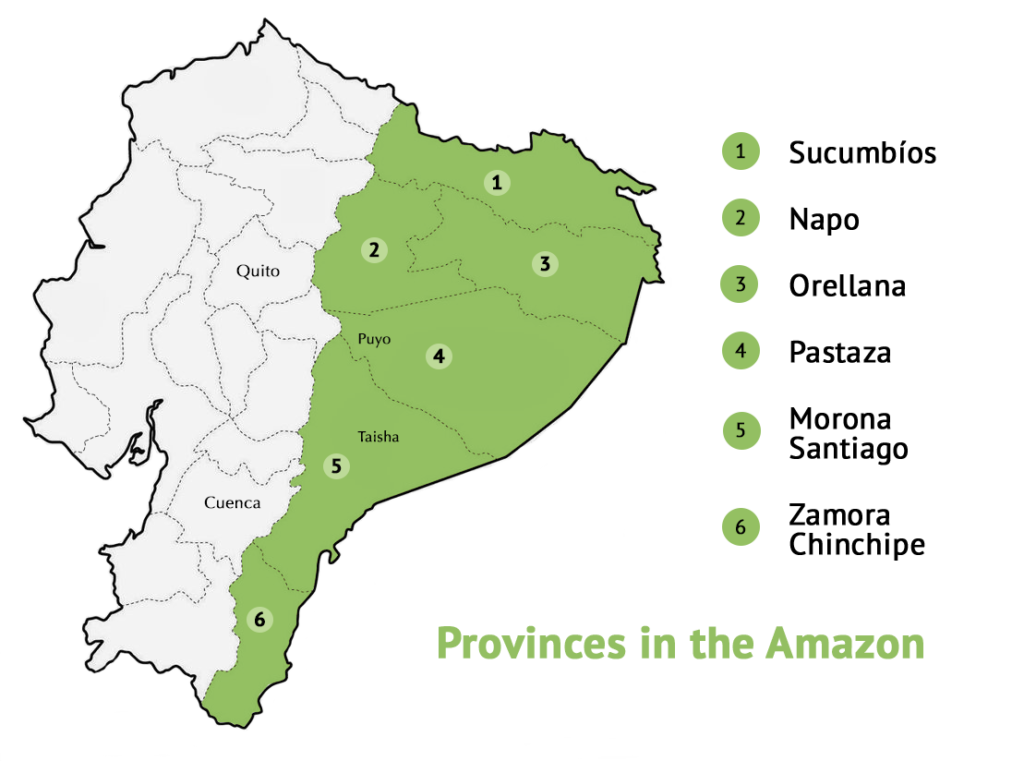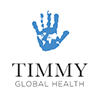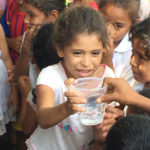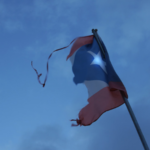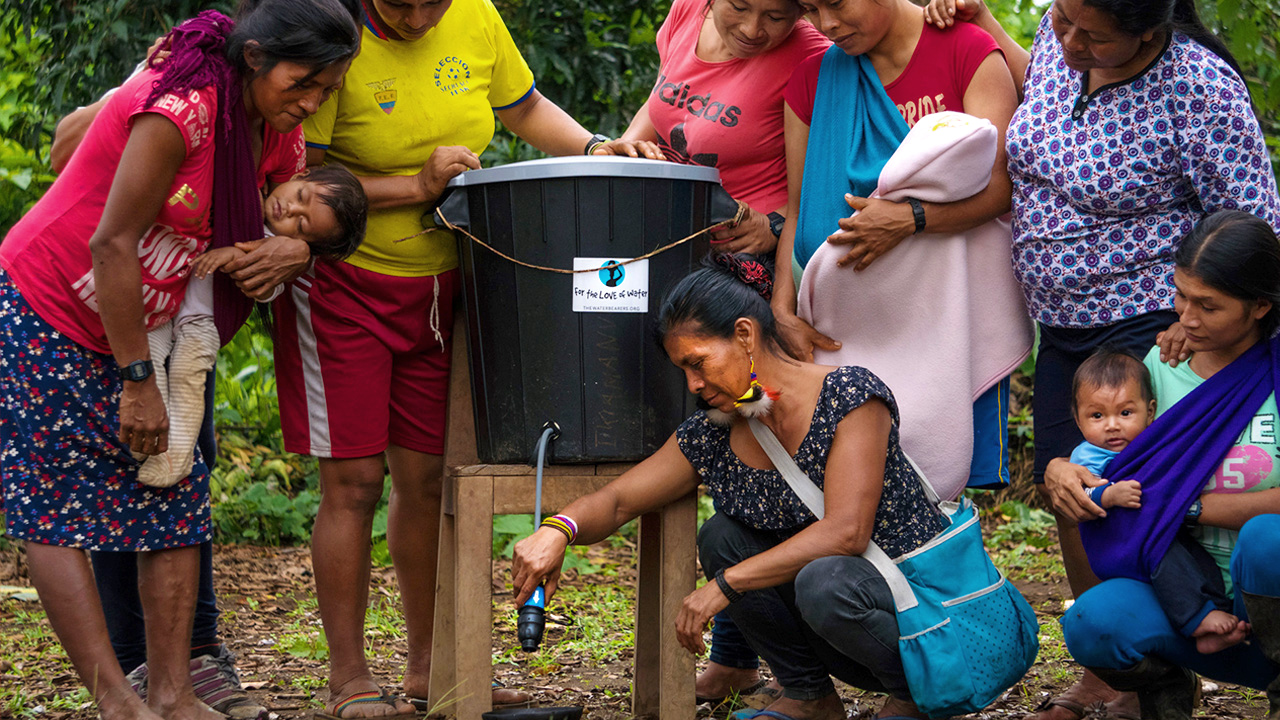
ECUADOR Amazon
The Achuar
Ecuador’s Amazon rainforest is one of the most biodiverse places on the planet and is home to 10 distinct indigenous nationalities, including the Kichwa, the Shuar, the Achuar, and the Waorani. During the past decade, indigenous organizations in Ecuador have become increasingly critical of government policies on water rights and the exploitation of natural resources. As their contact with the outside world increased, so did the potential threats of extractive industries to their territory.
The Waterbearers were introduced to members of the Achuar tribe in 2016 when co-founders Erin and Jane traveled with naturalist guide Andres Morales to learn of their needs and offer clean water solutions. Travel to the remote Pastaza province included a small airplane, hiking, and a canoe trip. We visited five communities, Kapawi, Wachirpas, Suwa, and Charapacocha, to demonstrate the filter system.
Six months later, Erin and Jane returned to Pastaza with filters for the communities of Kapawi, Sharamentza, and Wachirpas. Although a water pump had been previously installed in Wachirpas, the water from the pump was not potable. Using our filters at this water source provided safe drinking water to the community and local volunteers.
Following a meeting in Puyo with the Achuar Nationality of Ecuador (NAE Federation), we met Julian Illanes, a member of the Federation. They heard about our work in Pastaza and asked us to bring filters to two isolated communities, Wisui and Cotapaza, that did not have access to clean water. We distributed 20 filters to these communities, including one school.
The Kichwa indigenous peoples live in Yasuní National Park, one of the most biodiverse systems in the Amazon Rainforest.
Yasuni, Napo province
In 2015, Waterbearers co-founder Spryte Loriano brought a team to Yasuni, distributed 20 filters for the community, and provided training to the leaders of the Yasuni Ecolodge. They visited a local school to demonstrate the filters to 200 children and discussed the importance of using clean water. Soon these filters were being used daily by 250 of the local inhabitants. In 2016, The Waterbearers and the Executive Director of Waves For Water returned to Yasuni and delivered 50 filters to two communities and a school along the Napo River.
Centro Palmeras, Tena in the Napo province
Timmy Global Health (TGH), a US-based nonprofit, has been working since 2013 to stop waterborne illness at the source by bringing clean water solutions to the Amazon basin. Their initial program installed communal water tanks in five communities. Unfortunately, they eventually became inoperable because the tanks included a pump system that required maintenance, specialized tools, and training. In February 2018, TGH asked The Waterbearers to help them bring safe, clean water to a small community living on an island in the middle of the Napo River in the Amazon.
This island, accessible only by off-road vehicles and canoes, is one of the hardest-to-reach places in the region. The community of just 35 families welcomed us as we show them how to assemble and install the filters. They soon realized that these filters meant they could have enough water in their households without having to go to the village to collect from the rainwater tank or from the river. After water tests were made, the results were positively conclusive in removing E.coli and other harmful bacteria.
Sacha Waysa, Napo province
Sacha Waysa is a community tourism venture located in the Amazonian province of Napo. Thirty adventurers joined The Waterbearers co-founder Spryte Loriano in the fundraising efforts and water filter demonstration to the Kichwa community of Sacha Waysa, where 150 filters were distributed to 28 surrounding communities that lacked access to clean water, positively impacting 6000 lives.
The Shuar indigenous people are the second-largest indigenous community in Ecuador.
In 2016, while fundraising for relief efforts after a 7.8 earthquake ravaged the coast of Ecuador, we connected with several organizations, including the Verbo Church. We later joined Verbo Church benefactor Boris Ordonez to deliver 62 filters and demonstrate their use in three Shuar communities that lacked potable water in Tiwintsa in the province of Morona Santiago.

